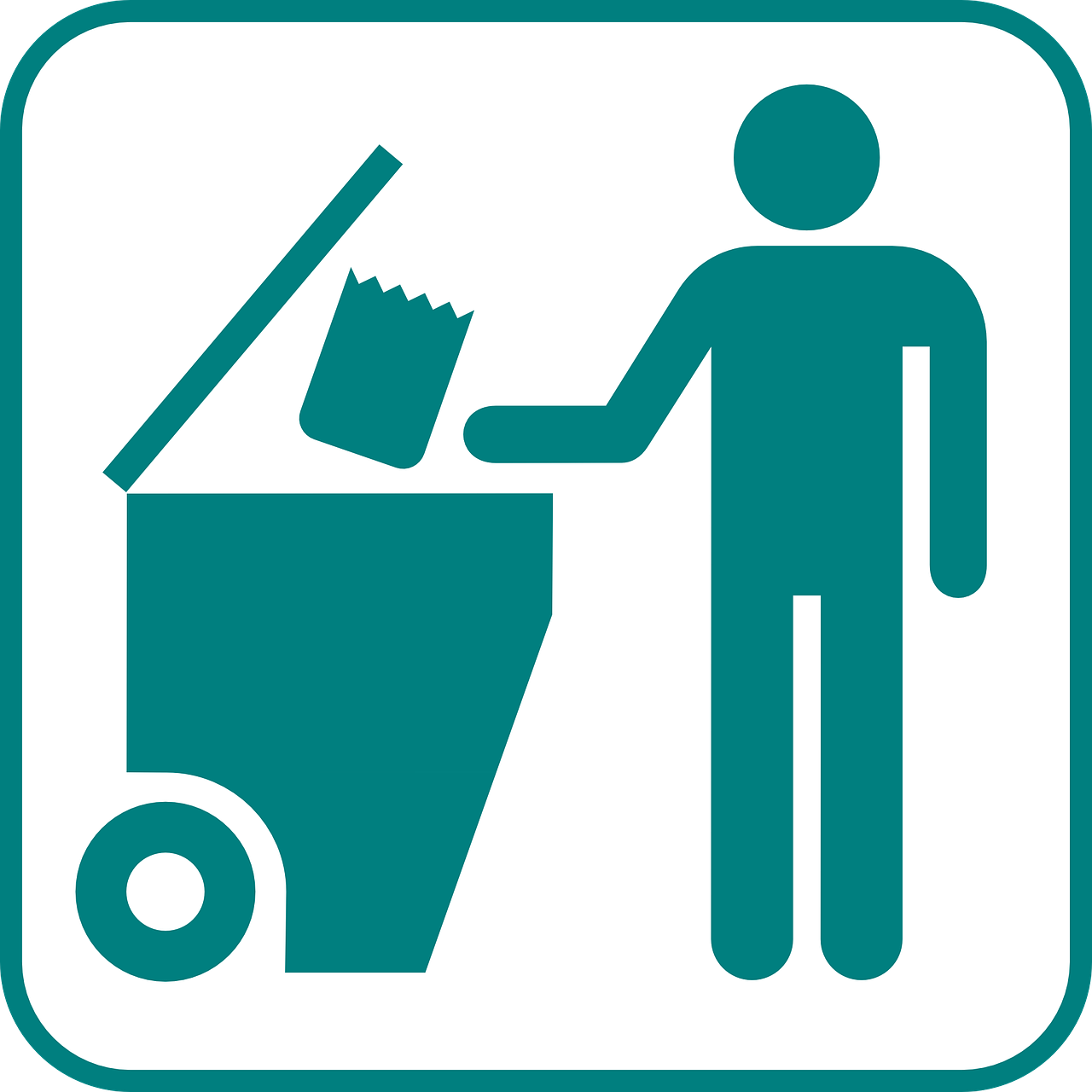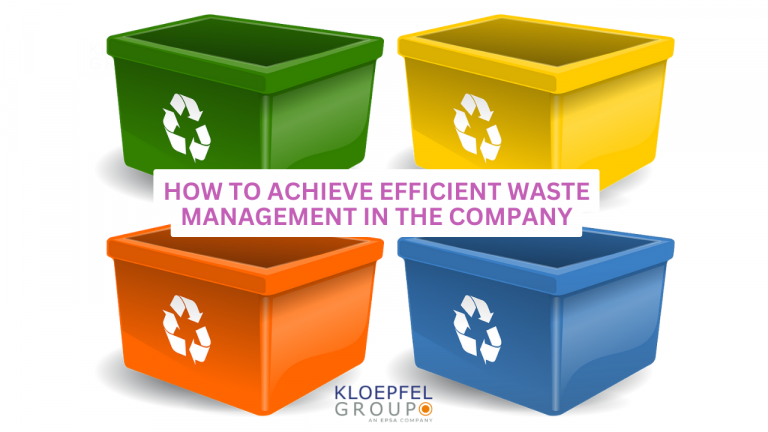The central role of procurement in waste management
The topic of waste management is a classic project theme encountered at nearly all of our clients – every company generates waste. Wherever waste is produced, proper disposal or, ideally, recycling is required.
Sustainability considerations, which are becoming increasingly important for many companies, along with ever more complex legal requirements, suggest that the topic holds significant importance. However, it is often observed, especially in medium-sized companies, that the necessary know-how and resources within the procurement organization are not sufficiently available. Daily operations dominate, and the focus is placed on high-revenue, direct product groups and production materials.
In contrast, waste management is one of many downstream topics that, at best, is partially addressed. In many cases, the process is handled without the involvement of procurement, with relevant activities managed by other departments – leading to numerous disadvantages, particularly a lack of cost transparency. This does not mean that the entire waste management process must be fundamentally managed or controlled by procurement, but procurement should be aware of the overarching commercial parameters and be able to influence them when necessary.
An overview for procurement
We provide an overview of how procurement can navigate waste management, assess offers and services knowledgeably, and operate confidently in the market. Additionally, we offer insights into how to establish legally compliant and cost-effective waste management standards in the company, reduce disposal costs, and increase revenues.
Inventory and understanding of the disposal situation
The starting point is always the inventory or understanding of the current disposal situation in the company. This includes, in particular, the waste streams and fractions generated, as well as their specific disposal requirements. It is advantageous that procurement, in its role as the supplier of the company, should be familiar with the types of waste generally produced. Some companies generate particularly large quantities or hazardous waste, while others produce valuable residues during production that can be sold and generate revenue. We often observe that quantities are manually recorded in Excel spreadsheets, which only allow a comprehensive view of the waste situation in the company with significant effort. This method is not only error-prone but also labor- and time-intensive. Modern software solutions help monitor and optimize waste streams; they provide insights into waste quantities, types, and costs. If these are not available, use information from your current waste disposal providers, for example, in the form of waste balances. Gain an overview and a basic understanding of the main types of waste and the underlying pricing factors, their price trends, and volatility.

Procurement approaches to reducing disposal costs
Procurement itself can often contribute to reducing disposal costs at a very early stage – the most effective way is undoubtedly to avoid waste generation in the first place. Where this is not possible or not fully achievable, other approaches can be considered during the procurement process:
- Recyclable Materials: Procuring materials that can be more easily recycled.
- Reusable Packaging: Selecting packaging that can be reused or returned, to avoid single-use packaging.
- Take-back Systems: Negotiating agreements with suppliers that include the take-back and reuse of packaging and materials. Some suppliers may also have legal take-back obligations.
- Demand-Oriented Purchasing: Avoiding overordering, which leads to excess materials and increased disposal costs.
- Just-in-Time Principle: Reducing inventory and associated waste through an optimized supply chain.
- Circular Economy: Implementing circular economy concepts, where products and materials remain in circulation as long as possible.
Legal requirements and waste hierarchy
Additionally, it is essential that procurement is well informed about the applicable legal requirements for waste disposal. Understanding the waste hierarchy (prevention, preparation for reuse, recycling, recovery, disposal) is crucial.
Overview of internal processes and collection systems
Considering the actual waste generated, procurement should then gain an overview of the internal processes and collection systems on site. Are container sizes appropriate? How is collection by the waste management company organized? Is collection still done on an ‘on-call’ basis at fixed times or automated when a certain fill level of a collection container is reached? Various optimization possibilities are available here as well, such as using smart collection containers or compacting cardboard or plastics into space-saving bales, which can significantly improve disposal efficiency.
Soliciting and evaluating offers
When soliciting offers, procurement should clearly and precisely define which types of waste need to be disposed of and in what quantities they occur, as well as detailing the collection modalities and any special requirements (e.g., disposal of hazardous organic waste). The selection of potential service providers is highly dependent on the specific types of waste generated. If waste that can be recycled or reused occurs in larger quantities, it may be worthwhile to look for specialized companies that can cover this specific area.
Particular attention should be paid to ensuring that service providers possess all necessary permits and licenses. This includes presenting certification as a certified waste management company, but also certifications such as ISO 14001 or other relevant credentials. Additionally, references from the same industry or customer reviews can provide insights into a service provider’s reliability and quality. The service provider should have modern equipment and sufficient capacity to efficiently handle the waste – this includes both the infrastructure and logistical capabilities. Good accessibility, quick support, and clear points of contact are also important aspects that companies should consider when selecting a provider. Offers should be solicited in a way that ensures they are clear and transparent, leaving no room for hidden fees or similar issues. Price adjustment clauses are a useful means of obtaining comparable offers for materials with volatile prices.
Conclusion of waste disposal contracts

When concluding waste disposal contracts, ensure that the agreement complies with all relevant legal and regulatory requirements. Detail in the contract the types of waste the service provider is to dispose of and define the included services as precisely as possible (e.g., collection, transportation, sorting, recycling, disposal).
If hazardous waste is involved, ensure compliance with safety standards in handling it. Additionally, the contract should include provisions for liability and insurance in the event of violations or accidents. Cost and revenue information should be clearly and comprehensively outlined. Contract durations should be appropriate and include options for extension or termination. If changes in waste volumes are foreseeable or cannot be ruled out, mechanisms for regular review or adjustment of services can be included.
Establishing response times for collection and emergencies is also advisable. Requirements for the documentation and reporting of the disposed waste quantities and types should round off the contract.
The transparency created by this reporting enables you to maintain oversight, ensure compliance with legal requirements, and support your company’s sustainability goals.
Optimization needs and support
Do you see a need for optimization in your company’s waste management? We are here to help! We offer not only a thorough assessment with the identification of existing weaknesses but also quickly and reliably evaluate the economic conditions based on current benchmarks.
In close coordination with you, we develop tailor-made solutions for a sustainable waste management concept, precisely tailored to your company. If desired, long-term management of your entire waste management system is possible, encompassing all economic and technical processes. Everything from a single source – sustainable, legally compliant, and permanently cost-optimized.
Feel free to contact us if you want us to optimize your waste management.
Contact:
Kloepfel Group
Christopher Willson
Tel.: 0211 941 984 33 | Mail: rendite@kloepfel-consulting.com


